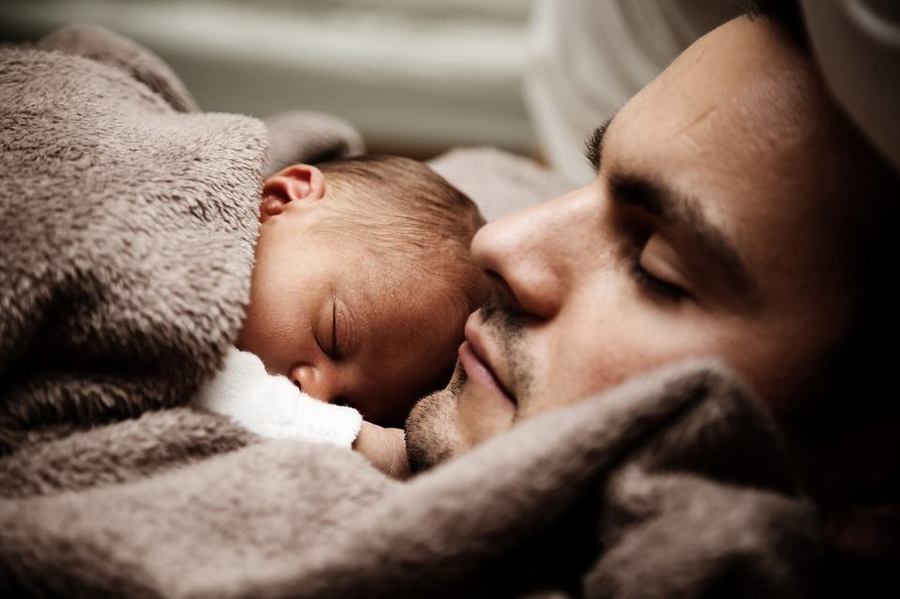The alarm goes off. You groggily open one eye and slam down the snooze button.
Not yet.
When we wake feeling tired and sluggish, most of us blame it on a lack of sleep — but often the cause of our sleepy mornings is that we’ve woken in the middle of one of our sleep cycles. This disruption can lead to a feeling of grogginess through the rest of the morning.
During the night, your body goes through several sleep cycles. Completing a sleep cycle is the key to waking feeling refreshed and rejuvenated — even if you’ve had less sleep than normal.
But what are sleep cycles? What is a good sleep cycle? Let’s examine the typical sleep journey we go through each night to find out the answers.
Contents
What are Sleep Cycles?
Let’s start with the question, what are the cycles of sleep?
There are five sleep phases in a complete cycle. Stage 1 is your lightest sleep phase and stage 4 is the deepest. The first four stages make up your NREM (non-rapid eye movement sleep) and each stage can last between 5 and 15 minutes. During NREM sleep, your eyes do not move but your muscles can still function.
Stage 5 is the final phase of your sleep and when REM (rapid eye movement sleep) occurs. This is usually characterized as the dreaming phase of sleep and is accompanied by greater eye and body movements.
The five stages of sleep happen in cycles with stage 1 starting over again when you enter your first REM stage. Each sleep cycle lasts around 90 to 120 minutes and you can experience up to five cycles in a typical night’s sleep.
The Different Phases of the Sleep Cycle
Now we come to what differentiates each stage of the sleep cycle — let’s take a detailed look.
Stage 1
The first stage is when your head hits the pillow and you close your eyes for a good night’s rest. Your eyelids may be slightly open and your breathing will start to slow down.
NREM stage 1 sleep is your lightest sleep phase when you can easily be woken up and it lasts for between 1 and 10 minutes.
Stage 2
In stage 2, it’s a lot harder to wake you up.
Your heart rate will slow down and your body temperature decreases to prepare you for a deep sleep phase, which usually lasts for around 20 minutes. That said, stage 2 is still characterised as a light sleep stage. You will spend around 45% of the total duration of your sleep in stage 2.
Stage 3
Around 35 to 45 minutes after you fall asleep, you’ll enter NREM stage 3 in your sleep cycle.
It’s also during this stage when REM sleep begins to kick in. You’re unlikely to show any reaction to noises and disturbances as it’s the transitional period between light sleep and very deep sleep. Slow brain waves (delta waves) also begin to emerge in stage 3 sleep, showing the relaxation of body and mind.
Stage 4
Some experts refer to stage 4 sleep as delta sleep because it’s at this point that the delta waves are fully present.
Stage 4 is classed as a deep sleep phase where things like sleepwalking and sleep talking can happen. NREM stage 4 sleep typically lasts for about 30 minutes.
Stage 5: REM sleep
REM (rapid eye movement) sleep is the final stage of the sleep cycle. You’ll also experience more dreams during this phase. Although you won’t know it at the time, your eyes will move rapidly in all directions while you are asleep. Your respiration rate and brain activity will also increased and your voluntary muscles will relax to a paralysed state.
The first REM sleep of the night happens after being asleep for at least 90 minutes and usually lasts around 10 minutes. REM sleep stages get longer and longer as we enter each cycle and the last one can last for anything up to an hour.
But it’s not quite so simple as that…
We should point out that your sleep doesn’t progress through all five stages in sequence.
The cycle begins in stage 1 and progresses to stage 2, 3 and 4. Stage 3 and then 2 are interchangeably repeated before eventually you’ll emerge into the REM sleep phase. Once the cycle is complete, you will return to stage 2 sleep, and your next sleep cycle will begin.
What is the Best Sleep Cycle?
Rather than ‘what is the best sleep cycle?’, the question should be ‘what is a good sleep cycle?’
In reality, there’s no such thing as a ‘best’ sleep cycle as their quality and duration can be affected by so many individual things, such as:
- Sleep disorders
- Stress
- Environment
- Inconsistencies in your sleep schedule
If you want to know what is a good sleep cycle, however, you’ll find that it’s simply one that you complete, rather than waking up in the middle of.
Sleep hackers committed to waking up feeling rested and refreshed usually invest in a smart alarm — either a wearable device or a mobile app.
Smart alarms wake you up in your lightest sleep phase (within a predetermined time frame) so you can avoid any feelings of sleep inertia. When your standard alarm wakes you in the middle of a deep sleep cycle, you could experience sleep inertia – and that could lead to you having a terrible day.
Final word
Asking yourself ‘what is the best sleep cycle’ is a good place to start if you’re committed to getting a better night’s sleep.
Remember, the best way to do that is to simply ensure that you wake up at the end of a sleep cycle, rather than in the middle of it. Sleep well!








